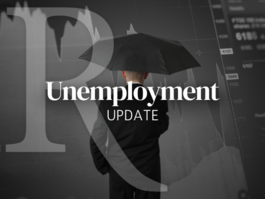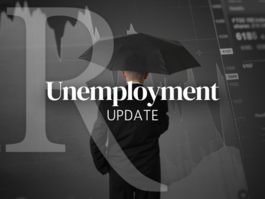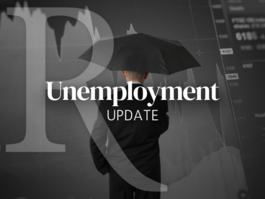Obama Tunes Out, and Business Goes on Hiring Strike
A Commentary By Michael Barone
Last week, I noted that various forms of the word "unexpected" almost inevitably appeared in news stories about unfavorable economic developments.
You can find them again in stories about Friday's shocking news, that only 54,000 net new jobs were created in the month of May and that unemployment rose to 9.1 percent.
But with news that bad, maybe bad economic numbers will no longer be "unexpected." You can only expect a robust economic recovery for so long before you figure out, as Herbert Hoover eventually did, that it is not around the corner.
Exogenous factors explain some part of the current economic stagnation. The earthquake and tsunami in Japan caused a slowdown in manufacturing. Horrendous tornados did not help. Nor did bad weather, though only a few still bitterly cling to the theory that it's caused by manmade global warming.
But poor public policy is surely one reason why the American economy has not rebounded from recession as it has in the past. And political posturing has also played a major role.
Barack Obama and the Democratic congressional supermajorities of 2009-10 raised federal spending from 21 percent to 25 percent of gross domestic product. Their stimulus package stopped layoffs of public employees for a while, even as private sector payrolls plummeted.
And the Obama Democrats piled further burdens on would-be employers in the private sector. Obamacare and the Dodd-Frank financial regulation bill are scheduled to be followed by thousands of regulations that will impose impossible-to-estimate costs on the economy.
That seems to have led to a hiring freeze. The Obama Democrats can reasonably claim not to be responsible for the huge number of layoffs that occurred in the months following the financial crisis of fall 2008. And Treasury Secretary Timothy Geithner and Federal Reserve Chairman Ben Bernanke did manage to help stabilize financial markets.
But while the number of layoffs is now vastly less than in the first half of 2009, the number of new hires has not increased appreciably. Many more people have been unemployed for longer periods than in previous recessions, and many more have stopped looking for work altogether.
It's hard to avoid the conclusion that the threat of tax increases and increased regulatory burdens have produced something in the nature of a hiring strike.
And then there is the political posturing. On April 13, Barack Obama delivered a ballyhooed speech at George Washington University. The man who conservatives as well as liberal pundits told us was a combination of Edmund Burke and Reinhold Niebuhr was widely expected to present a serious plan to address the budget deficits and entitlement spending.
Instead, the man who can call on talented career professionals at the Office of Management and Budget to produce detailed blueprints gave us something in the nature of a few numbers scrawled on a paper napkin.
The man depicted as pragmatic and free of ideological cant indulged in cheap political rhetoric, accusing Republicans, including House Budget Committee Chairman Paul Ryan, who was in the audience, of pushing old ladies in wheelchairs down the hill and starving autistic children.
The signal was clear. Obama had already ignored his own deficit reduction commission in preparing his annual budget, which was later rejected 97-0 in the Senate. Now he was signaling that the time for governing was over and that he was entering campaign mode 19 months before the November 2012 election.
People took notice, especially those people who decide whether to hire or not. Goldman Sachs' Current Activity Indicator stood at 4.2 percent in March. In April -- in the middle of which came Obama's GW speech -- it was 1.6 percent. For May, it is 1.0 percent.
"That is a major drop in no time at all," wrote Business Insider's Joe Weisenthal.
After April 13, Obama Democrats went into campaign mode. They staged a poll-driven Senate vote to increase taxes on oil companies.
They launched a Mediscare campaign against Ryan's budget resolution that all but four House Republicans had voted for. That seemed to pay off with a special election victory in the New York 26th congressional district.
The message to job creators was clear. Hire at your own risk. Higher taxes, more burdensome regulation and crony capitalism may be here for some time to come.
One possible upside is that economic bad news may no longer be "unexpected." Another is that voters may figure out what is going on.
Michael Barone, senior political analyst for The Washington Examiner (www.washingtonexaminer.com), is a resident fellow at the American Enterprise Institute, a Fox News Channel contributor and a co-author of The Almanac of American Politics.
COPYRIGHT 2011 THE WASHINGTON EXAMINER
DISTRIBUTED BY CREATORS.COM
See Other Political Commentaries.
See Other Commentaries by Michael Barone.
Views expressed in this column are those of the author, not those of Rasmussen Reports. Comments about this content should be directed to the author or syndicate.
Rasmussen Reports is a media company specializing in the collection, publication and distribution of public opinion information.
We conduct public opinion polls on a variety of topics to inform our audience on events in the news and other topics of interest. To ensure editorial control and independence, we pay for the polls ourselves and generate revenue through the sale of subscriptions, sponsorships, and advertising. Nightly polling on politics, business and lifestyle topics provides the content to update the Rasmussen Reports web site many times each day. If it's in the news, it's in our polls. Additionally, the data drives a daily update newsletter and various media outlets across the country.
Some information, including the Rasmussen Reports daily Presidential Tracking Poll and commentaries are available for free to the general public. Subscriptions are available for $4.95 a month or 34.95 a year that provide subscribers with exclusive access to more than 20 stories per week on upcoming elections, consumer confidence, and issues that affect us all. For those who are really into the numbers, Platinum Members can review demographic crosstabs and a full history of our data.
To learn more about our methodology, click here.



